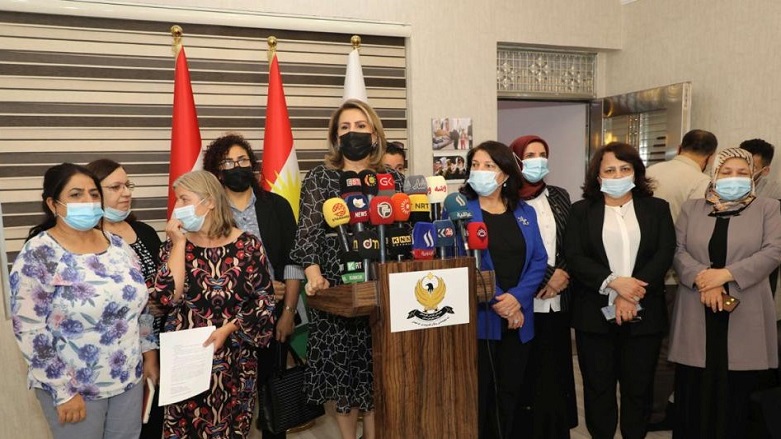Women's rights officials in Kurdistan Region call for new cybercrimes directorate to combat online sexual harassment, extortion

ERBIL (Kurdistan 24) – The head of the department tasked with combatting domestic violence in the Kurdistan Region's Ministry of Interior requested on Wednesday that the government launch a cybercrime directorate to face a disturbing spike of online harassment of females and related cases of domestic violence.
“Between 75-80 percent of domestic violence cases result from social networking sites, and that is why we believe it is necessary to open this directorate to confront these cases,” said Kurda Omer in a press conference held in Erbil alongside a group of women's rights activists.
Omer also pointed out that her directorate is in contact with both the regional and federal governments, as well as international organizations, as part of efforts to draft and pass a law to crack down on such harassment.
Khanzad Ahmed, Secretary-General of the Supreme Council for Women in the Kurdistan Region, added, “We formed a committee with the relevant ministries and institutions in the Kurdistan Regional Government (KRG) to confront the cases facing girls and women because recently these cases have increased.”
Ahmed explained that, in many of the cases, males are accused of hacking females' accounts, download personal material, and then blackmail them in various ways.
She stressed, “This must be confronted by law.”
Several women's rights activists and organizations in the Kurdistan Region have recently called on government agencies to modernize local criminal law to confront newly-evolving criminal threats to the public.
Laws protecting victims of sexual abuse and assault in the Kurdistan Region and Iraq remain woefully unenforced. The stigma surrounding sexual assault also makes it hard for women to come forward with their complaints, with many believing the attackers will face few, if any, repercussions.
Editing by John J. Catherine
